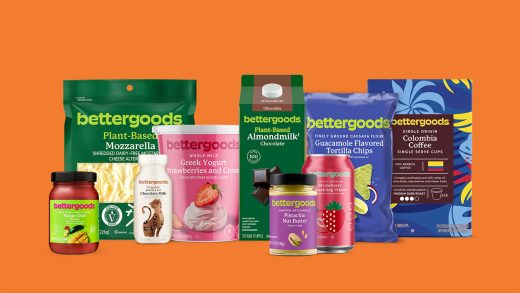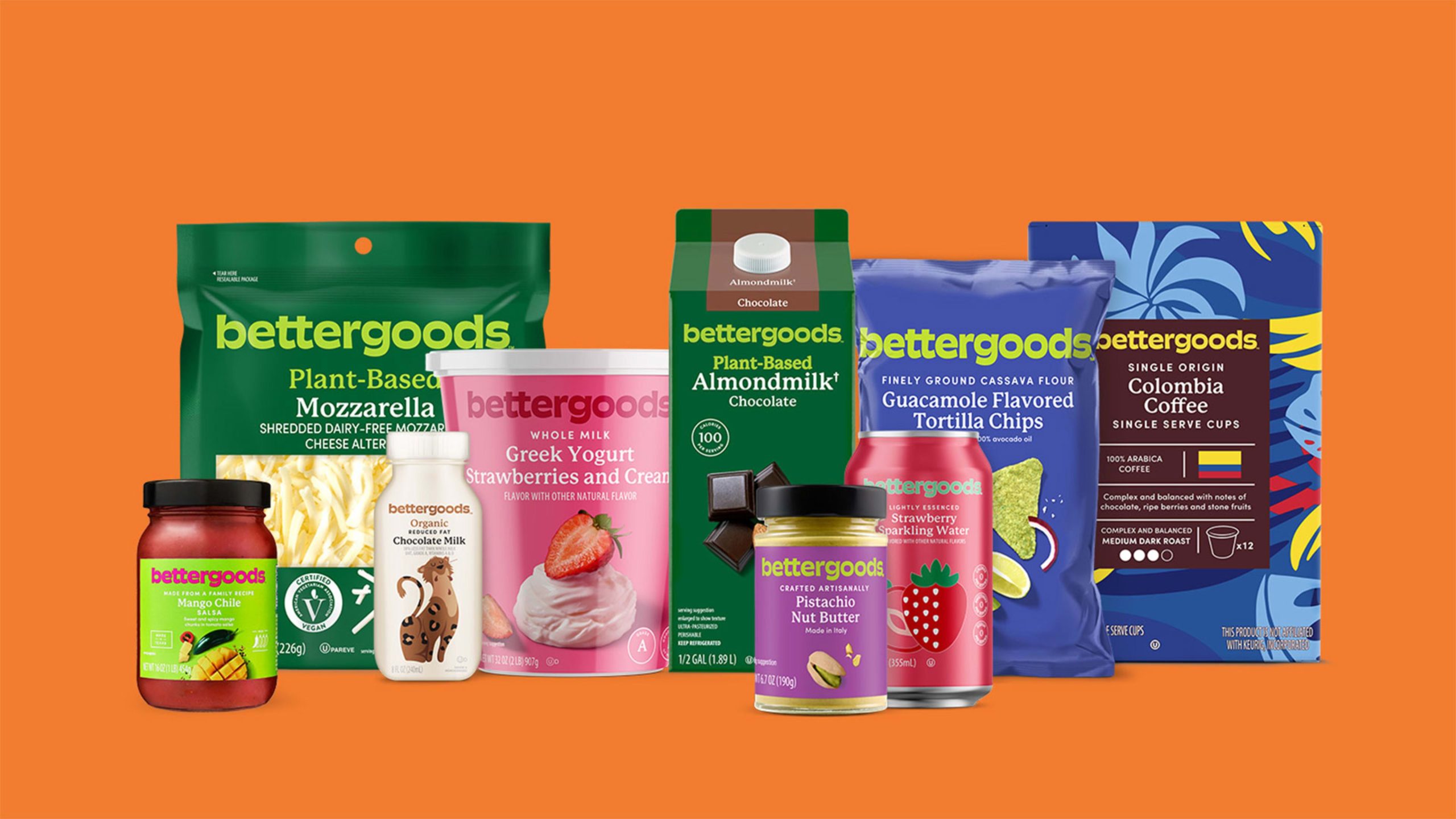Walmart takes on trendy Trader Joe’s with its largest private food brand in 20 years
Walmart takes on trendy Trader Joe’s with its largest private food brand in 20 years
The retail giant’s fresh attempt to compete in the upper-scale grocery space will include products such pistachio nut butter and plant-based mozzarella.
In a possible move to enter a trendier, upper-scale grocery space dominated by Trader Joe’s and Whole Foods, Walmart has announced Bettergoods, its largest private food brand launch in two decades—and the fastest, it claims, to have ever brought to market.
Bettergoods, Walmart says, will not only broaden customers’ options to include the likes of pistachio nut butter and plant-based mozzarella, but will do so with affordability at the forefront, with prices ranging from under $2 to below $15 and the majority costing less than $5.
The retail giant is enhancing its grocery offerings by introducing a selection of 300 quality, chef-inspired foods, including frozen foods, dairy, snacks, and beverages. Products are organized into three categories:
- Culinary experiences (including trendy seasonings)
- Plant-based options (including oatmilk nondairy frozen desserts)
- “Made Without” products tailored to specific dietary preferences (including gluten- and antibiotic-free offerings)
“Today’s customers expect more from the private brands they purchase—they want affordable, quality products to elevate their overall food experience. The launch of bettergoods delivers on that customer need in a meaningful way,” said Scott Morris, senior vice president, private brands, food and consumables, Walmart. “Bettergoods is more than just a new private brand. It’s a commitment to our customers that they can enjoy unique culinary flavors at the incredible value Walmart delivers.”
Private brands on the rise
Inflation has led to a rise in popularity of private-label brands among consumers looking to save on food costs. According to a report from Circana, private-label brand sales increased 6% year over year in the U.S. to $217 billion in 2023, and the private brands gained share from name brands, increasing from 24.7% of total unit sales in 2022 to 25.5% in 2023.
Millennials and Gen Xers without children represent more than a third (36%) of private-label food and beverage consumers, with households with kids making up another 35%, the report said.
Walmart and its competitors, including Target, are also incentivized to attract a younger Gen Z demographic that is not only more frugal but are also less likely to be committed to brands.
”As an industry, we’re seeing younger customers be more brand agnostic, prioritizing quality and value, and driving increased interest in private brands,” said Morris.
.
ABOUT THE AUTHOR
(15)



